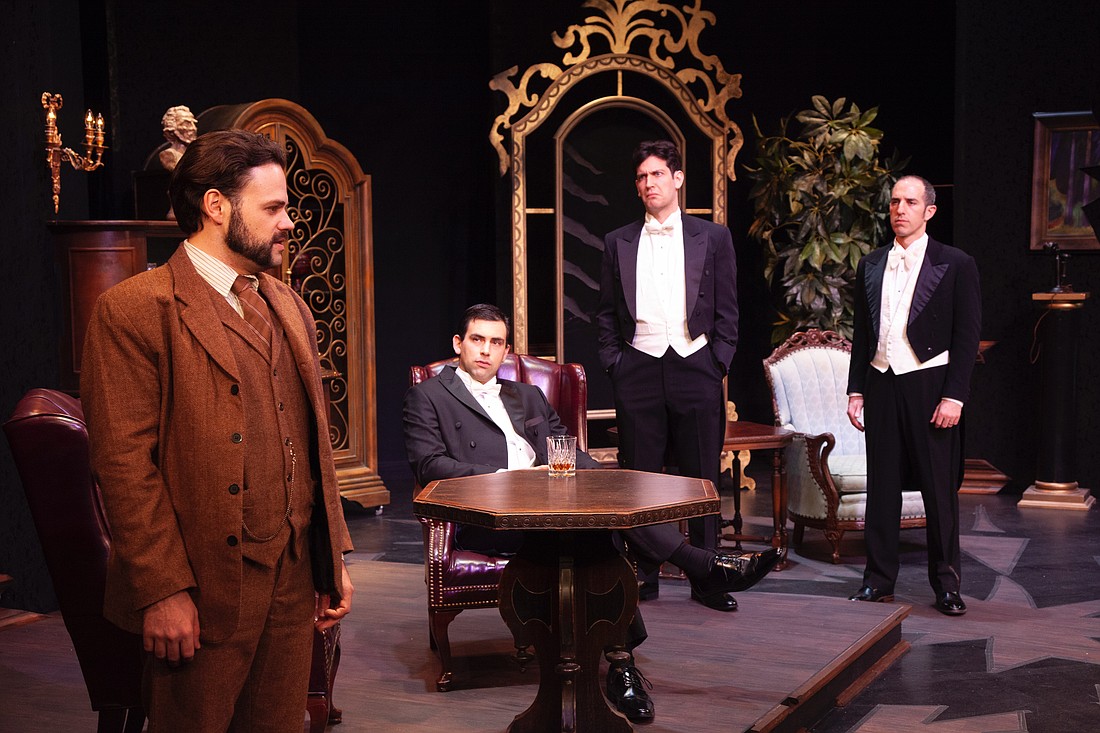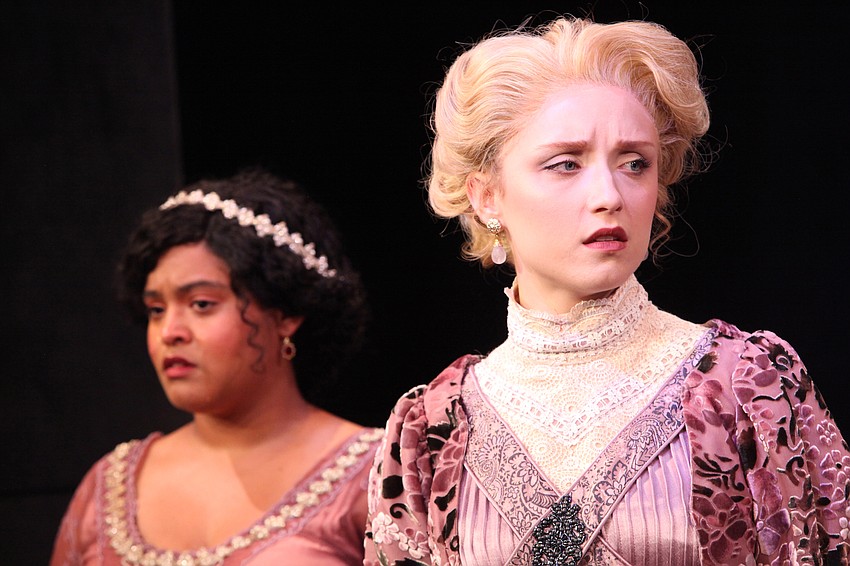- July 26, 2024
-
-
Loading

Loading

J.B. Priestley’s “An Inspector Calls” is the latest production from FSU/Asolo Conservatory for Actor Training. This harrowing X-ray of the soul is more parable than play and doesn’t try to be subtle.
It starts jolly enough in the upscale home of Arthur Birling (Brian Zane). He’s a wealthy manufacturer, and you can tell he’s doing all right. The Birling family is having a convivial dinner with Gerald Croft (Jordan Rich), who takes the opportunity to give his fiancée, Sheila Birling (Brielle Rivera Headrington), an engagement ring. (This might also portend a marriage between their families’ two competing firms.)
Arthur holds court. He loves the sound of his own voice — and repeatedly describes himself as a “hard-headed, practical man of business.”
The year is 1912, and Arthur thinks the future looks bright. He dismisses Kaiser William’s threats of war and the call for a general strike in the UK. “In 20 or 30 years' time … you’ll be living in a world that'll have forgotten all these capital versus labor agitations and all these silly little war scares.”
He’s equally contemptuous of the socialist fantasies of Bernard Shaw and H.G. Wells. “By the way some of these cranks talk and write now, you'd think everybody has to look after everybody else, as if we were all mixed up together like bees in a hive.”
That’s when Inspector Goole (Mikhail Roberts) calls. He informs the family that a young, working-class woman named Eva Smith has just died by suicide — and died in agony after drinking a bottle of disinfectant. What does this have to do with the Birling family and their guest? That’s what he wants to establish. The Inspector has questions for all of them.
As the evening unfolds, it turns out they all share responsibility for driving Eva to desperation. Arthur fired her after she led a strike at his mill. Gerald made her his kept mistress — and then dumped her when he had to move out of his friend’s empty house. Sheila got her fired from her job in a department store because she was jealous of her beauty. The youngest son, Eric Birling (Jackson Purdy), raped her and continued to use her sexually and got her pregnant. Eva went to the Brumley Women's Charity for help, but the uncharitable Mrs. Sybil Birling (Brooke Turner) was in charge. Sybil refused Eva any help — because she wasn’t one of the “deserving” poor.

Ultimately, they all helped to kill her.
The Inspector drives this point home with his final words …
“We are responsible for each other. And I tell you that the time will soon come when, if men will not learn that lesson, then they well be taught it in fire and bloody and anguish.”
With that, he’s gone.
Eric and Sheila repent — though Sheila returns Eric’s ring. The rest of the Birling brood is more concerned with impending scandal. The whole affair seems so unreal — and maybe it isn’t. The so-called “Inspector” never actually said he was a police inspector. But he seemed to know everything about everyone and immediately launched into his rude questions. They all felt intimidated and didn’t think to ask him for identification. Could the whole thing be a hoax? Arthur calls the infirmary to find out. No young woman’s suicide has been reported. They all breathe a sigh of relief.
No such luck. The phone rings again. This time, it’s a real police inspector.
Kirstin Franklin directs Priestley’s drawing room tragedy with a multilayered approach. It’s a talky play — but the thoughts going through the characters’ heads are what matters. Sheila and Eric are the only two with any conscience. They’re appalled that nobody else has the slightest guilt and are just trying to weasel out of responsibility.
Chris McVicker’s lighting and set design smartly evokes the conspicuous consumption of the Edwardian era’s elite. April Andrew Carswell’s overstuffed, bulky costumes are more like armor — and a wearable display of wealth. Alex Pinchin’s sound design adds to the nightmarish quality of Priestley’s parable.
There’s a hint of magical realism to this play. The otherworldly “Inspector Goole” is ghoulish indeed. He’s a close cousin to the “Spirit of Christmas Yet to Come” from Charles Dickens’ “A Christmas Carol.”
The news he brings from the future isn’t good.